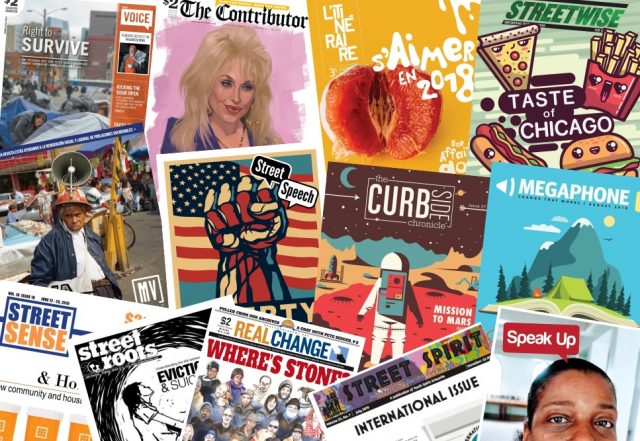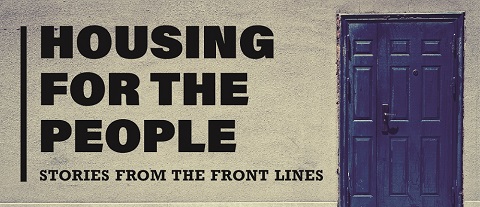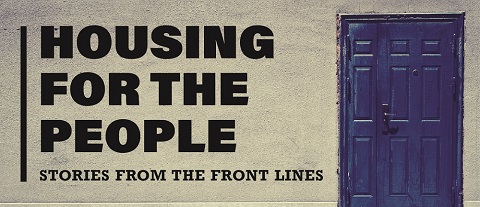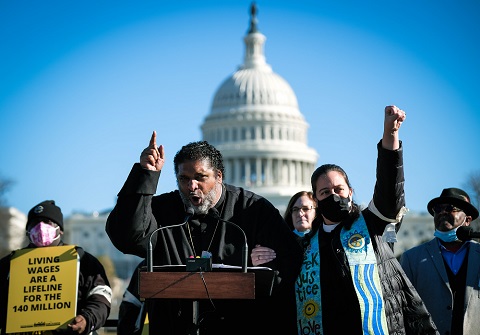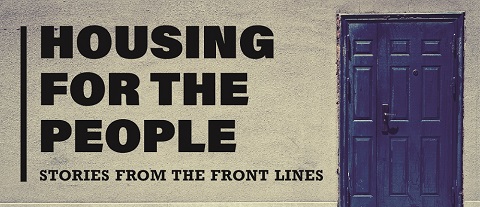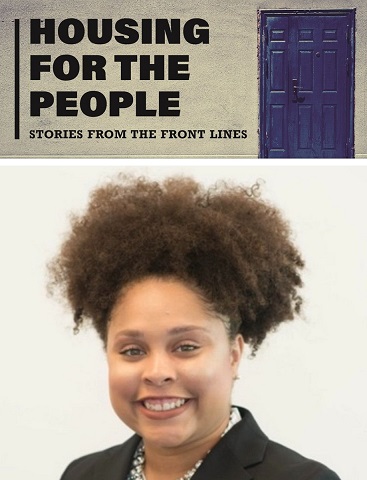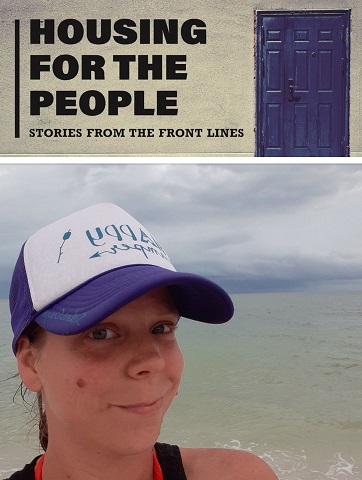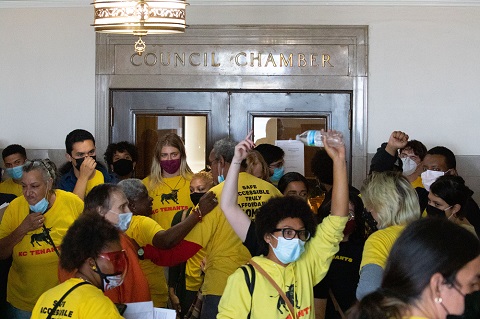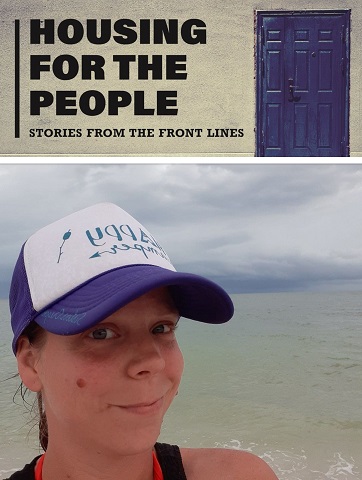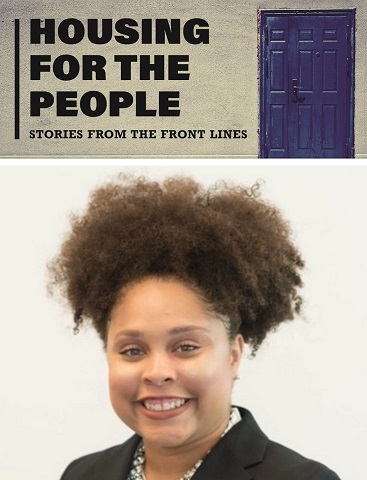Introduction
By Paula Carlson
It is spring, and like the flowers that are now pushing through the soil towards the sun, it’s time for Megaphone‘s annual project to bloom: our Voices of the Street literary anthology. And this year’s theme — climate change — has never felt more timely, if not urgent.
Megaphone storytellers, including the writers featured in the pages of this year’s Voices of the Street, regularly face a host of challenges, all linked to the inequities that come from living in poverty. Substandard housing (or no place at all to call home), physical disease, mental illness, addiction and isolation are among the daily, immediate challenges that they must overcome. Following a difficult two years navigating a deadly pandemic, and with toxic drug deaths continuing to soar, 2021 brought even more disastrous forces to their doors.
Last summer, long time vendor Peter Thompson saw his entire hometown of Lytton completely destroyed by wildfire. Further east, Suzanne Kilroy/Huculak watched forests consumed by flames as she and her terrified family raced along the Coquihalla Highway after evacuating Merritt, which would subsequently suffer cataclysmic flooding. In the Downtown Eastside, Julie Chapman struggled to help elders and others cope during British Columbia’s deadly heat dome. DJ Joe, who has COPD, collapsed in her building’s elevator during scorchingly high temperatures and the smoke-filled air, and hundreds more across the province died.
So when Megaphone hosted a series of writing workshops earlier this year, it became clear what was of great importance to participants: our environmentally distressed planet.
As a result, the pages of the new edition of Voices of the Street (Stealing Looks at the Sun: Writing About Climate Change in 2022) are packed full of prose driven by the growing impacts of climate change.
Now on sale, this is a behind-the-scenes look at the making of Voices of the Street.
Paula Carlson is the managing editor at Megaphone.
***
The making of Voices of the Street
By Amy Romer
When Mike McNeeley took on the assignment of photographer for Megaphone’s 2022 Voices of the Street literary anthology, he began searching Vancouver’s Downtown Eastside for connections to this year’s theme: climate change.
“I felt like a hunter,” he says. “I must have walked about ten miles over two days. I know every inch of those places I covered.”
Voices of the Street (VOTS) showcases the work of marginalized writers, and this year, for the second time, the project also enlisted Megaphone vendors to act as official photographers for the publication.
For the 2022 edition, McNeeley and photographer Priscillia Mays Tait joined 23 writers in producing VOTS, an annual literary anthology of prose, poetry, short stories and, sometimes, song lyrics.

The project was founded in 2010 by Megaphone as an opportunity to amplify under-represented voices. Each year, marginalized residents living in Greater Vancouver and Victoria have the chance to engage in workshops and produce original creative writing that is published in the anthology — an approximately 90-page, professionally designed book. Megaphone vendors are then given the opportunity to sell the anthology for profit.
This year’s theme — climate change — comes as around the world, people are increasingly finding themselves bearing the brunt of the devastating consequences of global warming.
B.C. residents are still recovering from the effects of the unprecedented weather events of 2021, including catastrophic flooding that displaced thousands and a heat dome that killed nearly 600 residents over seven days of record-shattering high temperatures. Wildfires razed communities and the entire town of Lytton burned to the ground.
When extreme weather came, marginalized populations were hit particularly hard, and were more at risk for dire — sometimes deadly — outcomes. Factors such as being socially isolated and living in poorer neighbourhoods with less green space and tree cover played major roles in the fatality rate. Elders were particularly vulnerable.
Wildfire, heat and flooding were just some of the topics that inspired this year’s writing cohort. The beauty of nature, including in an urban setting, was also an inspiration.
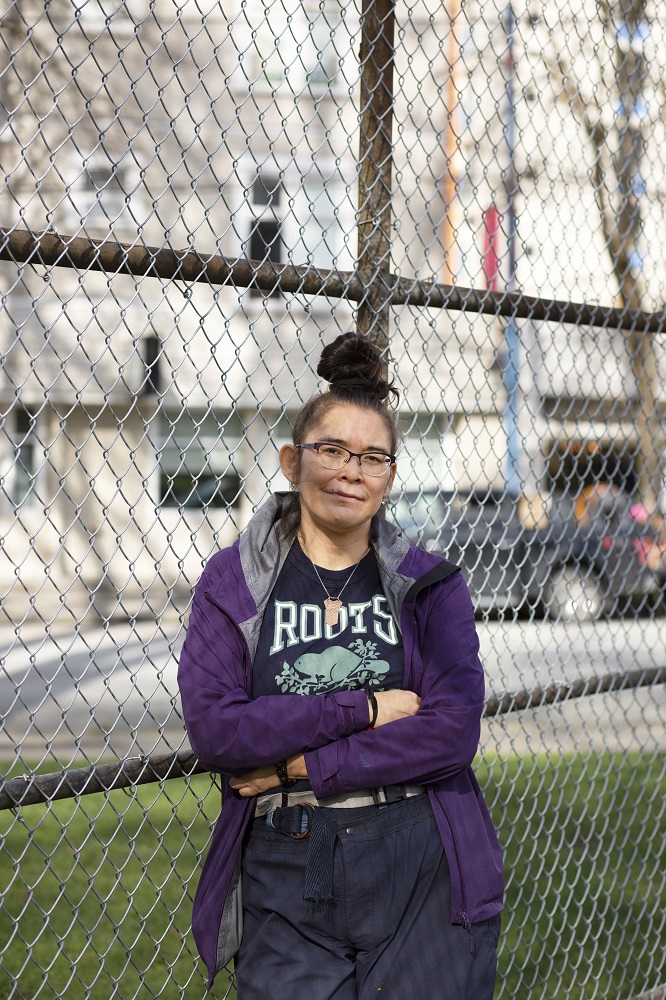
James Witwicki has been involved with VOTS since 2011 and has had numerous pieces of prose published, both in VOTS and in Megaphone’s monthly magazine. He has a degree in English from UBC, but it was through Megaphone that he established his love of writing poetry. Witwicki lives with bipolar disorder and was briefly homeless after his wife passed away in 2009.
“I was looking for a diversion and Megaphone was there to offer it to me,” he says.
Witwicki was put at ease when he learned of this year’s “green” theme. “I’ve been an observer of trees for 20 years,” he says. “I’m just going to write my thing.”
This year, Witwicki has three pieces of writing appearing in VOTS, including The hummingbirds’ tree. It’s partly inspired by Gerald Bane Straley’s Trees of Vancouver and David Tracey’s Vancouver Tree Book. Both survey hundreds of tree species that can be found in Vancouver’s public parks.
Witwicki has tasked himself with the challenge of identifying 100 tree species in the Downtown Eastside — the hummingbirds’ tree is one he is stumped to name. Unlike Straley and Tracey, who survey public land, Witwicki includes folks’ front and back yards.
“It enables you to connect with other people who love trees,” he says. “They like it when you take notice.”
His other pieces in this year’s VOTS include a homage to the humble seagull and an achingly nostalgic reminiscence of childhood.
Witwicki hopes his stories inspire others to appreciate nature as he does.
“If I can get other people to get excited about this stuff, then they can see what they do for the environment,” he says.
Visions from the street
For the second year running, VOTS is pairing its creative writing with photography taken by Megaphone’s visual storytellers. Priscillia Mays Tait and Mike McNeeley have both been involved with VOTS for nearly a decade.
[Editor’s note: As part of the making of the 2022 Voices of the Street, Amy Romer led a photography workshop for Priscillia Mays Tait and Mike McNeeley and acted as a photography mentor for the pair.]
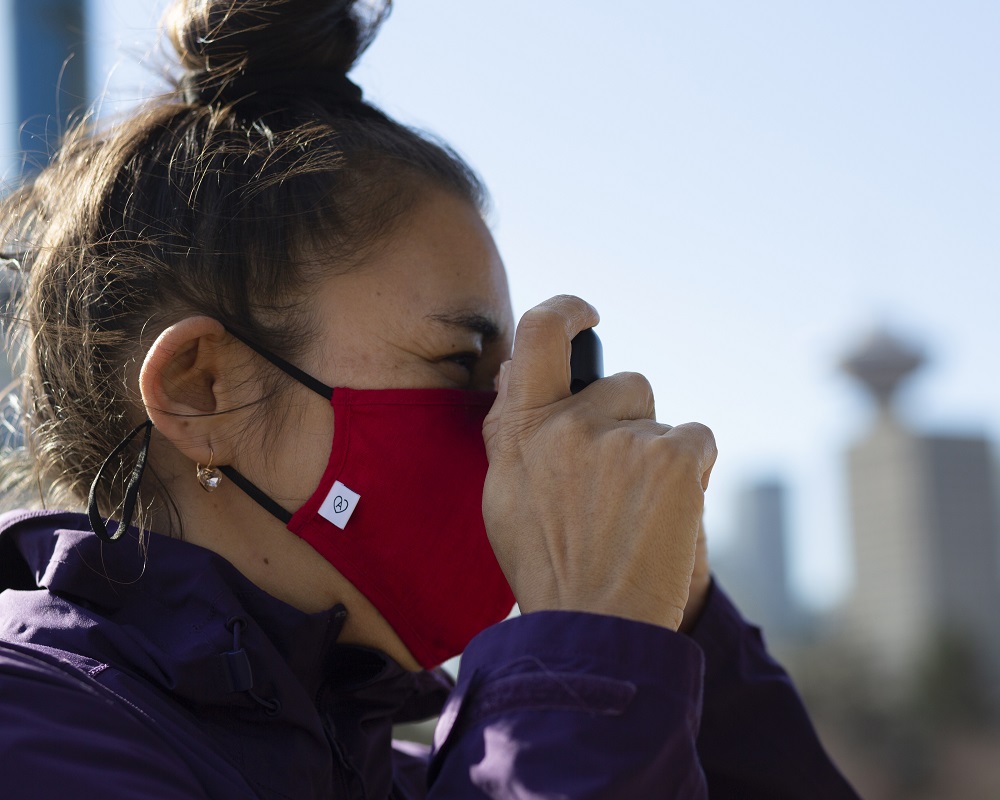
Like a number of the anthology’s writers, Tait used prompts provided by Megaphone creative writing workshop facilitators Céline Chuang and Alyssa Martens to help inspire creative ideas. The pair led a series of workshops in February designed to spark interest in — and submissions to — VOTS.
In addition to taking photographs, Tait participated in the writing workshops and has a poem published in this year’s edition.
“[The prompts] made the process of going out and taking photos feel kind of like a scavenger hunt,” she says.
From “greening and greenwashing,” to “treasure, not trash,” to “water as teacher,” it was up to each contributor to see which prompt, if any, spoke to them.
“The water prompt really caught my attention, because of my dad and because water is a key to my own healing,” Tait says.
Tait is an urban Babine, Gitxsan, and mostly Wet’suwet’en artist. Tait says her father has been concerned about water since the 1980s. His chief name, L”C’Eka (Le’gah), means “fish swimming upriver rubbing against rocks” in the Heiltsuk language. Tait says that when she first learned about this year’s theme, “right away, I thought of my dad.”
Many of Tait’s photographs reflect her interest in water. From Spanish Banks to Bowen Island, Tait’s photography is purposeful, allowing her to reflect on both the anthology’s theme as well as her culture and ancestry.
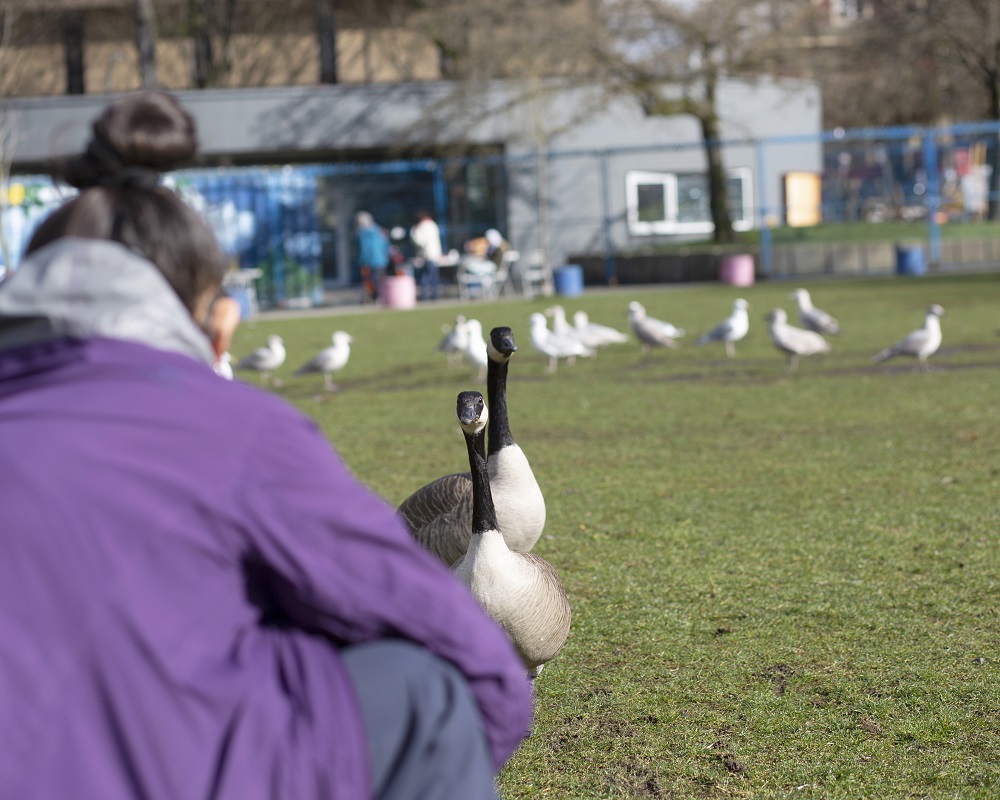
Photography as intuition
This will be McNeeley’s second year capturing photographs for the anthology. He’s a street photographer, able to find moments of beauty in the most unlikely of places. For McNeeley, photography is about intuition.
“I tried to find images that applied to climate change and that was a challenge,” he says. “It’s like looking for a needle in a haystack.”
He prefers to carry his camera with an open mind, thinking later about what his images might mean in relation to a topic such as climate change.
The anthology has provided McNeeley with an opportunity to build positive memories.
“When I go past these places, I can say to myself I had a good experience here,” he says.
He’s been inspired to buy photography books and a roll of film. Once he finds his film camera, he’s going to take his unique intuition back to familiar streets.
VOTS offers a collective vision by individuals who are too often silenced by stigma. Many live in the midst of poverty, homelessness, physical and mental illness and addiction, but as residents who bear the brunt of Canada’s socio-economic, cultural and environmental challenges, their voices and perspectives are important.
“The calibre of writing that flows into Voices of the Street moves me each year,” says Paula Carlson, managing editor at Megaphone. “The talent among our storytellers is phenomenal.”
The 2022 Voices of the Street is available to buy from Megaphone vendors in Vancouver and Victoria now. Each book sells for $10, with $5 going directly to the vendor. Digital editions will also be available at megaphonemagazine.com, with proceeds going to support vendors or, if you prefer, a vendor of your choice.
Amy Romer is an award-winning photojournalist and visual storyteller based in North Vancouver. She is a National Geographic Explorer. Her work focuses primarily on human rights and the environment.
Courtesy of Megaphone




